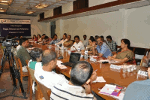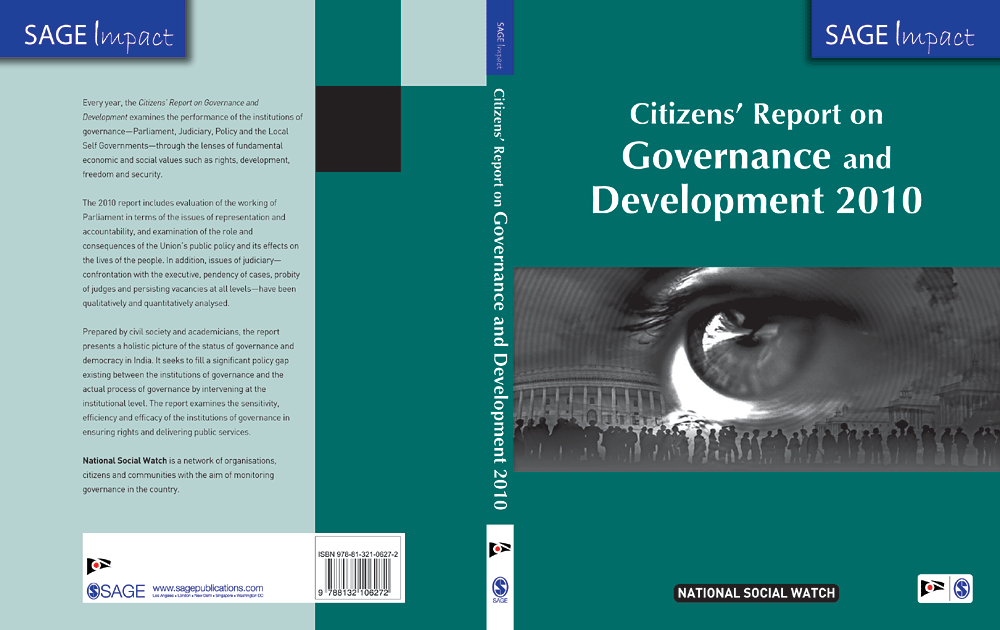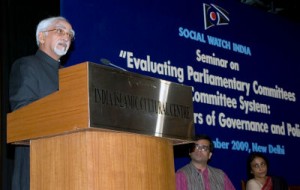INDIA
Published on Mon, 2011-09-19 12:24
Sources: Social Watch India, Governance Now |
|
Published on Wed, 2010-12-15 15:31
Source: National Social Watch Coalition India (NSWC) The 2010 report of Social Watch India, to be launched in Delhi next Tuesday December 21st, includes evaluation of the working of Parliament in terms of the issues of representation and accountability, and examines the role and consequences of the Union’s public policy and its effects on the lives of the people. In addition, issues of judiciary - confrontation with the executive, pendency of cases, probity of judges and persisting vacancies at all levels- are qualitatively and quantitatively analysed. |
|
Published on Mon, 2010-05-10 16:37
|
|
Published on Wed, 2009-11-25 03:00
NEW DELHI: In a scathing indictment of the parliamentary committee system, an independent report has said that leave alone acting as watchdogs, committees were vulnerable to manipulation. The report — Evaluating Parliamentary Committees and Committee System — prepared by the National Social Watch Coalition elaborates with examples how committees have been used by the government to serve its ends. |
SUSCRIBE TO OUR NEWSLETTER



 The dynamics of International Financial Institutions and private capital in the globalized world has often acted as delimiting factors to state sovereignty. The role of Social Watch as a ‘watch dog’ gains significance in the current context of multiple crisis stressed the Pan-Asian Workshop: "Who pays? The global crises and what needs to be done – an Asian perspective" held in New Delhi, India, 22- 24 February 2010.
The dynamics of International Financial Institutions and private capital in the globalized world has often acted as delimiting factors to state sovereignty. The role of Social Watch as a ‘watch dog’ gains significance in the current context of multiple crisis stressed the Pan-Asian Workshop: "Who pays? The global crises and what needs to be done – an Asian perspective" held in New Delhi, India, 22- 24 February 2010. First published by
First published by 
